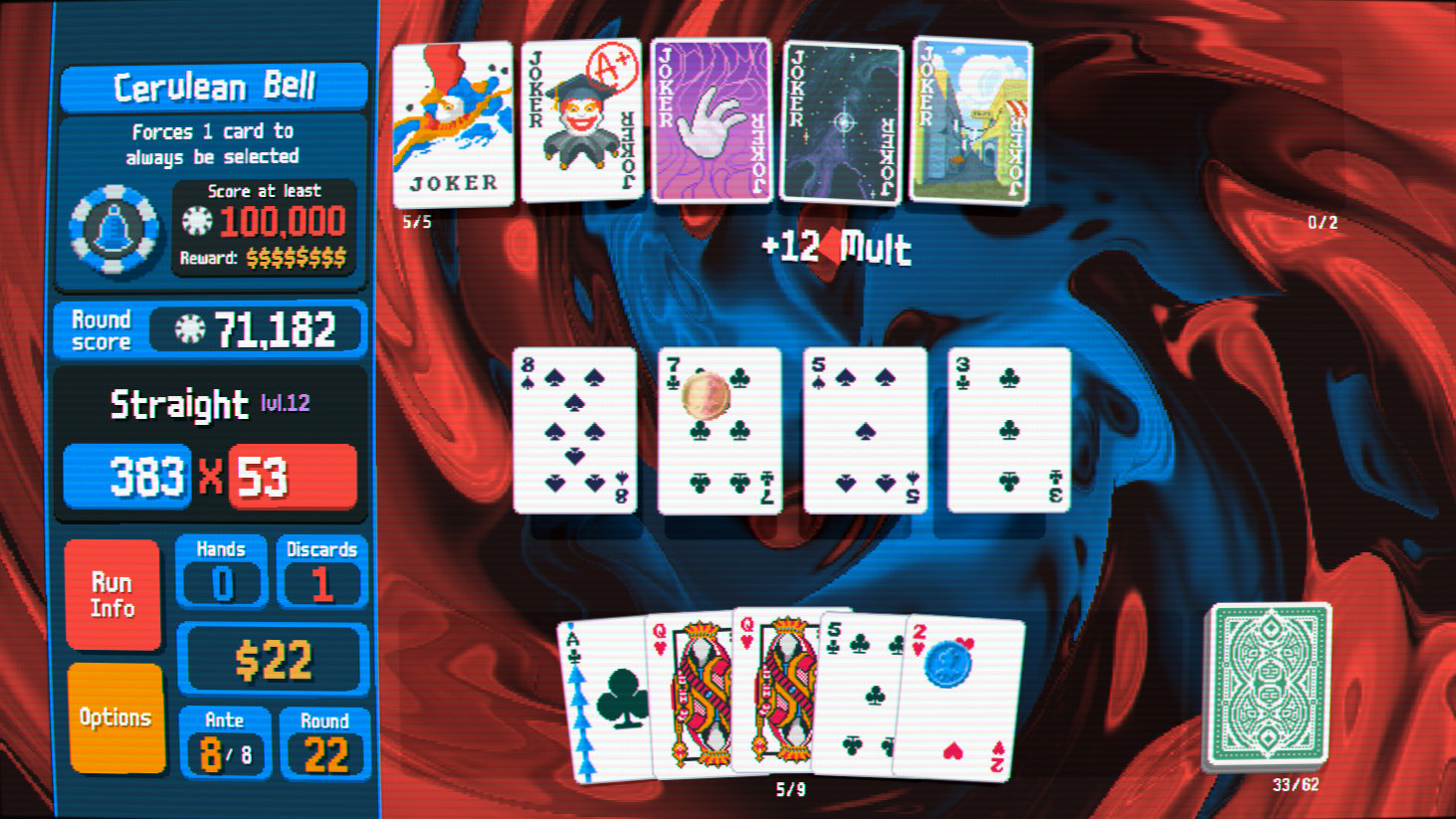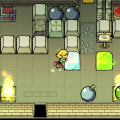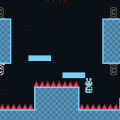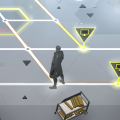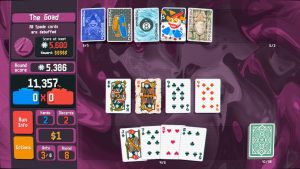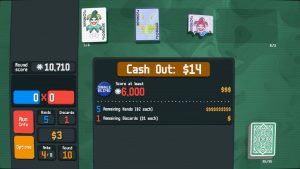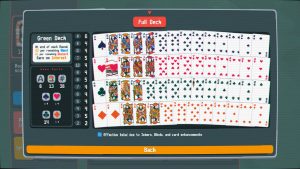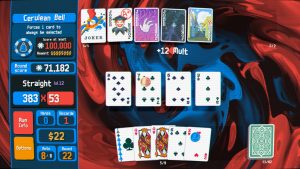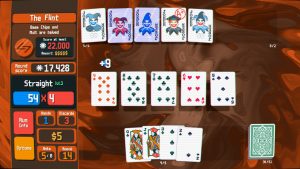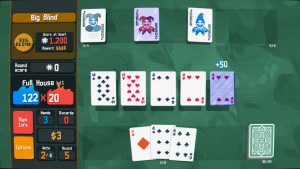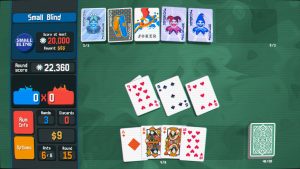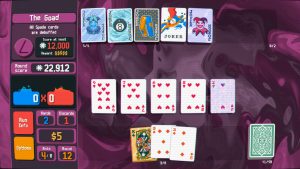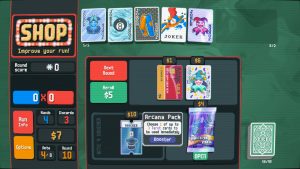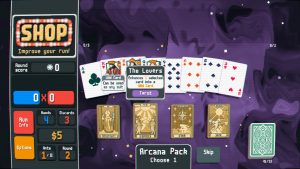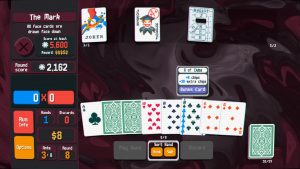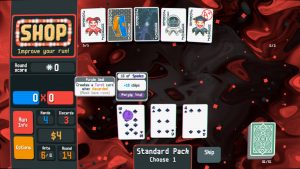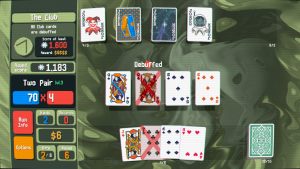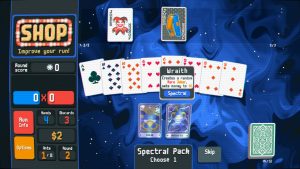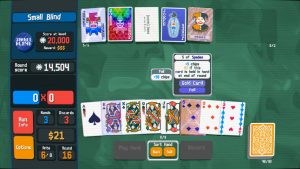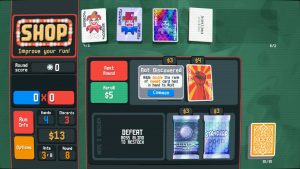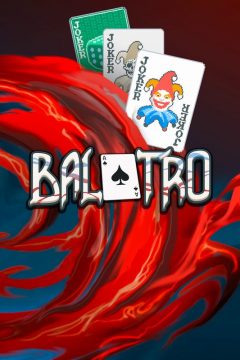
In the world of indie and middle market gaming today, there are no shortage of games that combine deck building and roguelite elements. It’s become as tiring as a horror game where you find random objects in a small map while trying not to trigger a jump scare, or anything based around survival and crafting mechanics. To stand out from the crowd, you need to do something special, and that’s what the anonymous developer “Localthunk” has done. This was managed simply by removing the usual dressings and focusing on as simplistic a core idea as you possibly can – building poker hands.
It gets absolutely absurd from there.
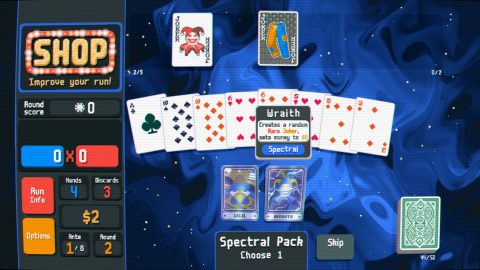
Balatro has been a fast hit (outside a kerfuffle in certain regions with a sudden rating change), and for good reason. It’s a very simple idea built up from a strong foundation to become an addictive, number-go-up high chaser few can hope to match. It arguably has less in common with other deck builders as it does with the equally addictive Vampire Survivors. The basic idea is you go through “antes” (think a stage or level) by going through three blinds, a goal of a certain chip amount you have to meet with a certain number of hands. Boss blinds also have a debuff attached, complicating things, not to mention the option of skipping blinds for a randomized benefit that might be worth more than getting paid from doing a blind. You also have to finish a blind in order to visit the shop, also randomized, which has the stuff you need to get through increasingly large blinds.
Every hand has a base chip amount, alongside a multiplier for that base chip amount that calculates your payout. You also have a chart you can check at any time for how to make said hands and what they’re worth, alongside extra info like current deck composition, complete with stat breakdowns to help figure out probabilities. This would normally mean the rarer, more complicated hands would be what to aim for, but there are ways to make more common hands a more viable option.

Through the scant few dollars you get from playing, usually by leftover hands and interest for having money stored up, you can purchase a large variety of cards and booster packs in the shop after every blind. You can add cards to your deck, which doesn’t just include normal playing cards, but also cards with additional modifiers. For example, you can get hard chip and multiplier bonuses from foil or holographic cards, or you might get funkier stuff like steel and glass cards. Steel ones give multiplier bonuses as long as you hold them in your hand (not your played hand), but glass cards give a bonus after being played – with a 1 in 4 chance of breaking. There’s tons more of these card types, and the types can actually stack, including seals that can activate a bonus like extra cards being spawned or extra money.
If you want weaker hands to be more valuable, make use of planet cards, which give a hard bonus and “level up” a given hand they’re associated with. You can easily make a two pair worth more than a straight or flush, and then build your deck around two pairs with lots of duplicates of certain numbers or values. Tarot cards give a one time bonus, like changing a set number of cards to a specific suit or changing the card type, while spectral cards work similar with more risk and reward, while also being rarer. Most important, however, are the jokers, which you can have up to five set out at the top of the screen. They’ll offer passive bonuses and extra multipliers or chip amounts in the right conditions, along with a wide variety of other wacky abilities, and are central to making a strong set of hand types. Lastly, vouchers can give a bonus for the run that sticks, but cost a steep 10 bucks, and should be considered carefully.
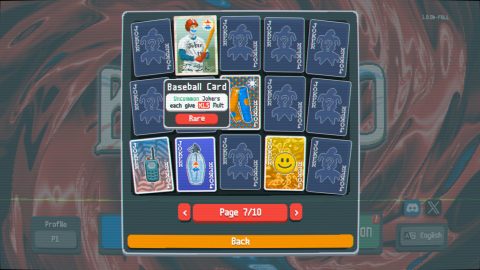
Add in unlocks via in-game achievements to get various decks, jokers, and so forth, and a few extra game modes like challenges and the dreaded endless mode, and you have a recipe for an addictive time. The sheer simplicity of the game, all the strong UI design, and the mesmerizing backtrack and visuals, result in something both approachable and extremely fun once you manage to get that good run in, and it’s not even particularly difficult as you start to figure out strategies that work for you. The short length of runs (and the fact you can save during them and come back if needed) make for a simple game that has shocking levels of depth and complexity to sort through, made easy to explore and discover on one’s own.
The only real issue is something you may have already noticed in describing the game, that being that the in-game terminology can get a tad confusing. “Hand” refers to played hands and your main hand you keep your drawn cards in, for example. It’s also poorly explained the difference between the adding of multipliers and the multiplying of the current multiplier count, the latter having the number in a red square being a poor signifier. These are small issues, but can cause issues on higher level runs, as the descriptions on jokers on other cards can get a tad confusing. That can have unexpected ramifications, as your understanding of how a card works might be completely off.
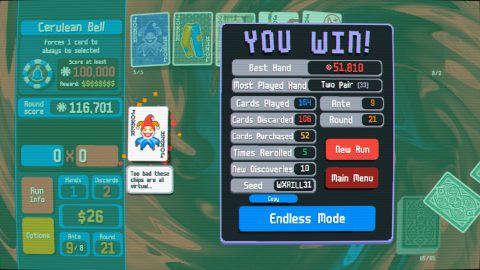
You can deal with that small problem with enough experience, at least. Outside that, Balatro is a simple foundation with a lot of depth to explore, and a fantastic loop to keep you in for round after round. Even if you dislike roguelites or deckbuilders, you should still give this one a shot, because it skims away all the obnoxious details and bloat from what these games usually bring for a single thing it’s really fun to do over and over. You’ll get your money’s worth and then some. You might be surprised how much you’ll enjoy this one.
